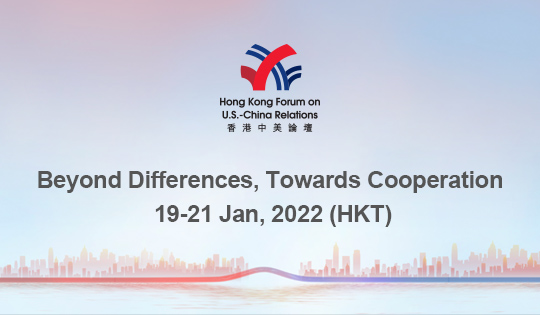Click to read the latest China-US Focus Digest
Unlike the old superpower contest between the United States and the Soviet Union, the incipient cold war between China and the US does not reflect a fundamental conflict of unalterably opposed ideologies. Instead, today’s Sino-American rivalry is popularly portrayed as an epic battle between autocracy and democracy.
Moreover, the facts seem to suggest that autocracy has won while democracy has fallen flat on its face. Whereas the US under President Donald Trump has fumbled disastrously during the COVID-19 pandemic, China has brought the coronavirus under control. In the US, even wearing face masks has been politicized. But in Wuhan, China – the pandemic’s original epicenter – the authorities tested the city’s 11 million residents for the virus within ten days, in an astounding display of capacity and order. For many, the verdict seems clear: authoritarianism is superior to liberal democracy.
But such a conclusion is simplistic and even dangerously misleading, for three reasons. First, just as the US under Trump is not representative of all democracies, China under President Xi Jinping should not be held up as a paragon of autocracy. Other democratic societies, such as South Korea and New Zealand, have handled the pandemic ably, and political freedom did not hobble their governments’ ability to implement virus-containment measures.
As for examples of autocracies that brought catastrophe upon themselves, look no further than China’s recent history. No modern Chinese leader held more personal power than Mao Zedong, yet his absolute authority led to a massive famine followed by a de facto civil war during the Cultural Revolution. Chaos is by no means unique to democracy; under Mao, it was insidiously deployed to maintain his power.
Second, there are democracies with illiberal features and autocracies with liberal ones. America’s current troubles do not reflect a universal failure of democracy, but rather the failure of a democracy with the illiberal traits that Trump has brought to the presidency. As commander-in-chief, Trump has ignored democratic norms such as bureaucratic autonomy, the separation of private interests and public office, and respect for peaceful protest.
If democracies can take an authoritarian turn, the reverse can be true in autocracies. Contrary to popular belief, China’s economic ascent after its market opening in 1978 was not the result of dictatorship as usual; if it had been, Mao would have succeeded long before. Instead, the economy grew rapidly because Mao’s successor, Deng Xiaoping, insisted on tempering the perils of dictatorship by injecting the bureaucracy with “democratic characteristics,” including accountability, competition, and limits on power. He set an example by rejecting personality cults. (Ironically, Chinese banknotes feature Mao, who despised capitalism, rather than Deng, the father of Chinese capitalist prosperity.)
This recent history of “autocracy with democratic characteristics” under Deng is widely overlooked today, even within China. As Carl Minzner points out, Xi, who became the paramount leader in 2012, has ushered in an “authoritarian revival.” Since then, the official narrative is that because China has succeeded under centralized political control, this system should be maintained. In fact, under Deng, it was a hybrid political system married to a firm commitment to markets that moved China from poverty to middle-income status.
Taken together, this means that both the US and China have grown illiberal in recent years. The lesson from America’s upheavals today is that even a mature democracy must be constantly maintained in order to function; there is no “end of history.” As for China, we learn that liberalizing tendencies can be reversed when power changes hands.
Third, the supposed institutional advantages of China’s top-down rule are both a strength and a weakness. Owing to its revolutionary origins, concentration of power, and penetrating organizational reach, the Communist Party of China (CPC) typically implements policies in the manner of “campaigns” – meaning that the entire bureaucracy and society are mobilized to achieve a given goal at all costs.
Such campaigns have taken many forms. Under Xi, they include his signature policies to eradicate rural poverty, root out corruption, and extend China’s global reach through the Belt and Road Initiative.
Chinese policy campaigns deliver impressive results because they must. Xi’s poverty-fighting campaign lifted 93 million rural residents out of poverty in seven years, a feat that global development agencies can only dream of accomplishing. The Chinese authorities also went into campaign mode during the COVID-19 outbreak, mobilizing all personnel, attention, and resources to contain the virus. These results lend support to official Chinese media’s oft-trumpeted claim that centralized power “concentrates our strength to accomplish great things.”
But, pressured to do whatever it takes to achieve campaign targets, officials may falsify results or take extreme measures that trigger new problems down the road. In the drive to eliminate poverty, Chinese authorities are abruptly relocating millions of people from remote areas to towns, regardless of whether they want to move or are able to find sustainable livelihoods. The fight against corruption has led to the disciplining of more than 1.5 million officials since 2012, inadvertently resulting in bureaucratic paralysis. And in their desperation to meet pollution-reduction targets, some local officials tampered with devices that measure air quality. Big and quick results rarely come without costs.
The idea that we can choose only between freedom in an American-style democracy and order in a Chinese-style autocracy is false. The real aim of governance is to ensure pluralism with stability – and countries everywhere must find their own path to this goal.
We must also avoid the fallacy of rushing to emulate whichever national “model” is fashionable, whether that of Japan in the 1980s, post-Cold War America, or China today.
When you are considering whether to buy a car, you want to know not only its pros, but also its cons. This is the kind of common sense that we should apply in assessing any political system. It is also an essential intellectual skill for navigating today’s new cold war climate.
Copyright: Project Syndicate, 2020.
www.project-syndicate.org

